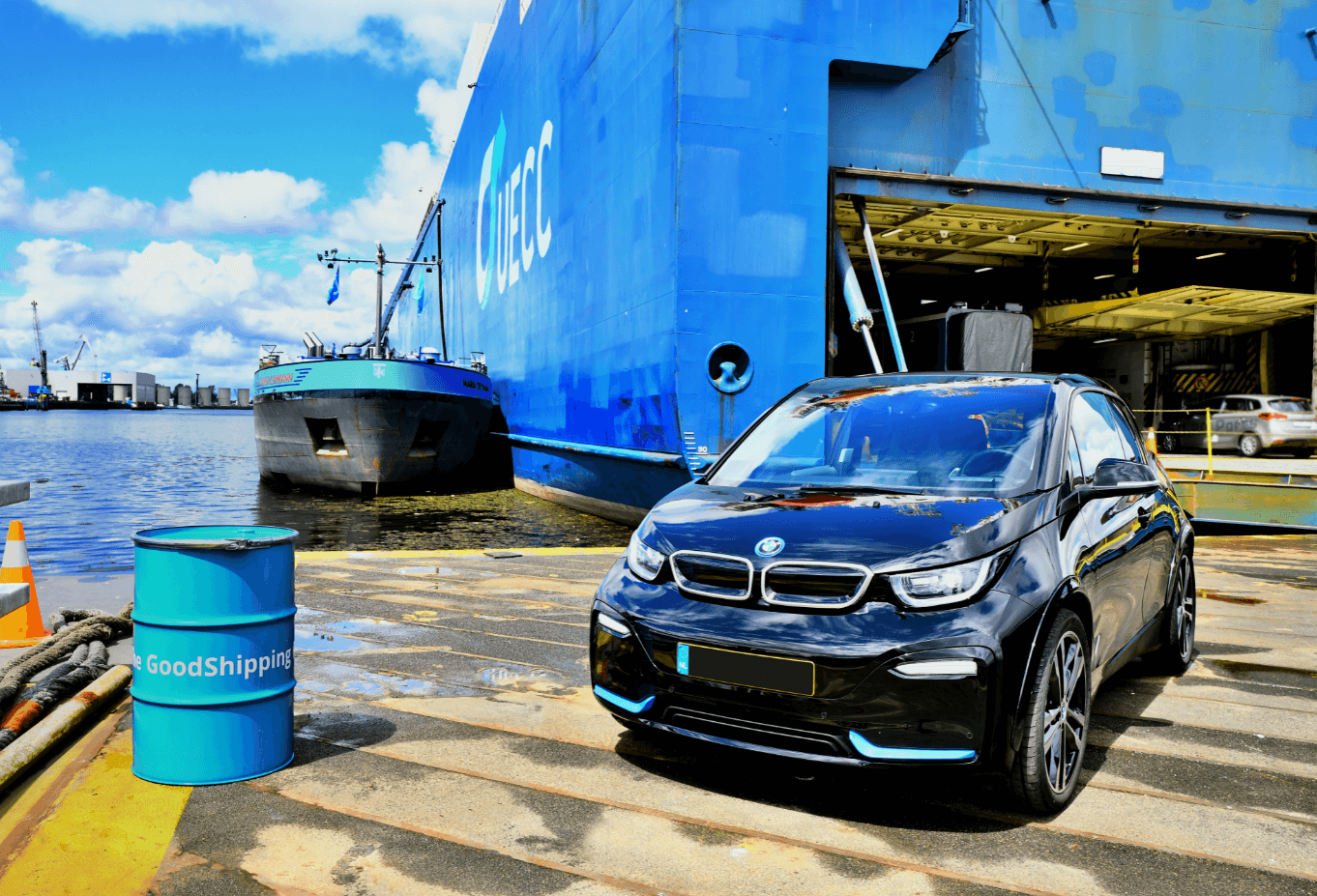
Short sea shipowner UECC and the GoodShipping Program have partnered with car manufacturer BMW Group to test marine Bio Fuel Oil (BFO) on UECC’s ro-ro car carrying vessels.
BMW Group joins UECC and the GoodShipping Program in a trial, where BFO is being tested on UECC’s 140m, 2,080-vehicle carrier M/V Autosky.
The first volume of biofuel was delivered to M/V Autosky on March 16, 2020 in the Port of Rotterdam. The trial will see subsequent further refuelling operations between March and July 2020. M/V Autosky is currently testing BFO on the route between Zeebrugge, Belgium and Santander, Spain.
The group will be able to claim a CO2 emission reduction of 80 to 90% for the shipments, totalling more than 400 tonnes of carbon.
BMW believe this is a significant and important step towards achieving a carbon-neutral supply chain and is the core aim of the GoodShipping Program, which enables cargo owners to reduce their environmental footprint.
“At UECC, we want to support our customers and enable them to make proactive, conscious choices about their cargo transportation. BMW Group’s participation to continue our trial on our ro-ro vessel M/V Autosky should therefore signal to the automotive sector that the means to decarbonise are readily available and that our vessels are equipped to meet this most important of challenges for the shipping industry.” said Daniel Gent, Energy and Sustainability Manager, UECC.
The BFO – based on cooking oil – being used for this trial was supplied by the leading biofuel company GoodFuels. The marine biofuel ‘drops in’ to normal fuel tanks, is virtually sulfur oxide (SOx) free and delivers 80 to 90% well-to-exhaust CO2 reduction versus fossil equivalents. The joint trial proves that the means to reduce the carbon footprint of transporting goods and vehicles around the world already exist on the market and that second-generation advanced biofuels can be scaled to meet this demand.
With this scalability, marine biofuel effectively allows shipowners and operators to comply with both new legislation around sulphur content for marine fuels, as well as future regulations on carbon reduction by 2030 and 2050. Thus, the announcement marks an important milestone towards the decarbonisation of ocean freight.

